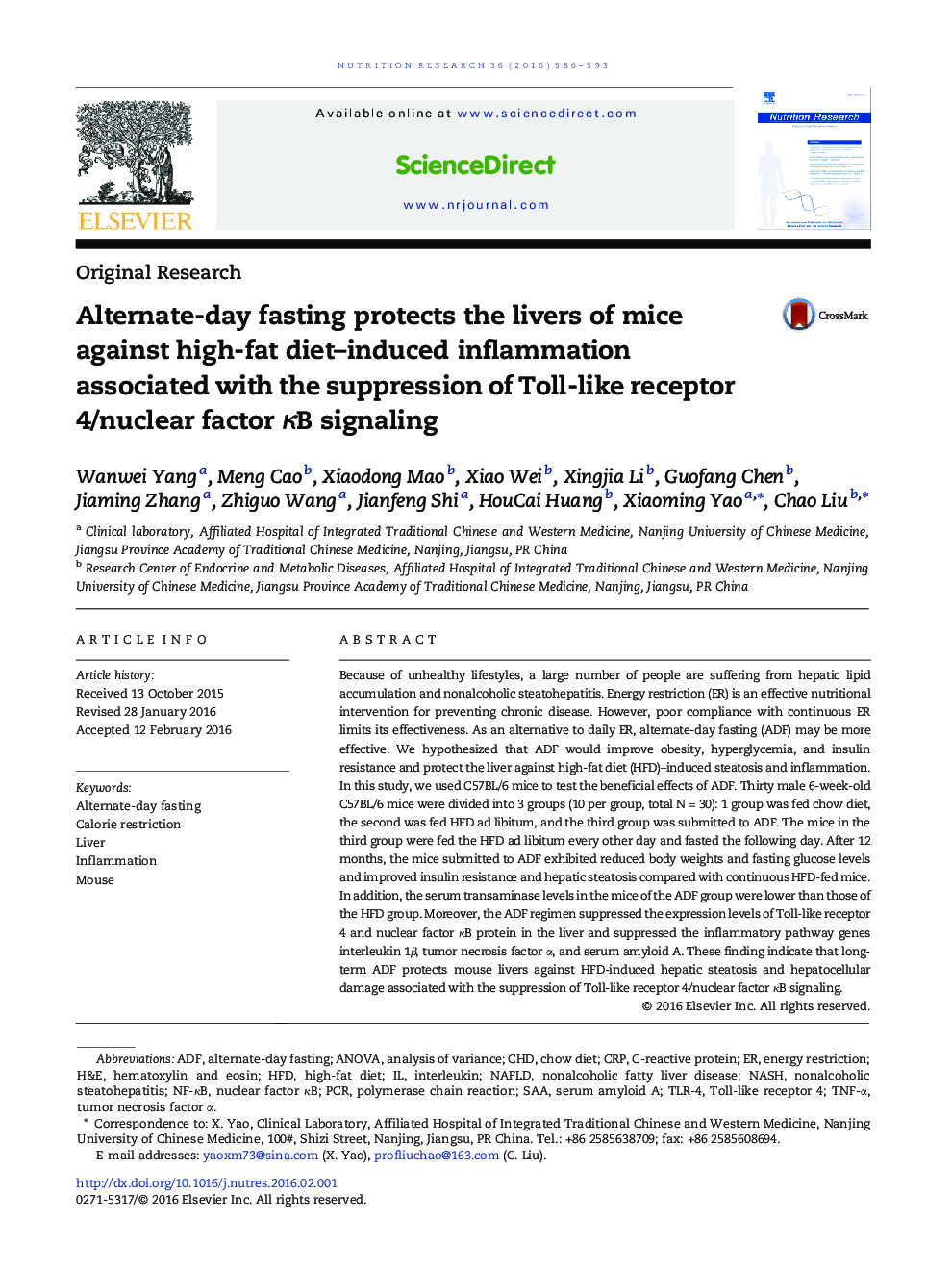| Article ID | Journal | Published Year | Pages | File Type |
|---|---|---|---|---|
| 2808892 | Nutrition Research | 2016 | 8 Pages |
Because of unhealthy lifestyles, a large number of people are suffering from hepatic lipid accumulation and nonalcoholic steatohepatitis. Energy restriction (ER) is an effective nutritional intervention for preventing chronic disease. However, poor compliance with continuous ER limits its effectiveness. As an alternative to daily ER, alternate-day fasting (ADF) may be more effective. We hypothesized that ADF would improve obesity, hyperglycemia, and insulin resistance and protect the liver against high-fat diet (HFD)–induced steatosis and inflammation. In this study, we used C57BL/6 mice to test the beneficial effects of ADF. Thirty male 6-week-old C57BL/6 mice were divided into 3 groups (10 per group, total N = 30): 1 group was fed chow diet, the second was fed HFD ad libitum, and the third group was submitted to ADF. The mice in the third group were fed the HFD ad libitum every other day and fasted the following day. After 12 months, the mice submitted to ADF exhibited reduced body weights and fasting glucose levels and improved insulin resistance and hepatic steatosis compared with continuous HFD-fed mice. In addition, the serum transaminase levels in the mice of the ADF group were lower than those of the HFD group. Moreover, the ADF regimen suppressed the expression levels of Toll-like receptor 4 and nuclear factor κB protein in the liver and suppressed the inflammatory pathway genes interleukin 1β, tumor necrosis factor α, and serum amyloid A. These finding indicate that long-term ADF protects mouse livers against HFD-induced hepatic steatosis and hepatocellular damage associated with the suppression of Toll-like receptor 4/nuclear factor κB signaling.
